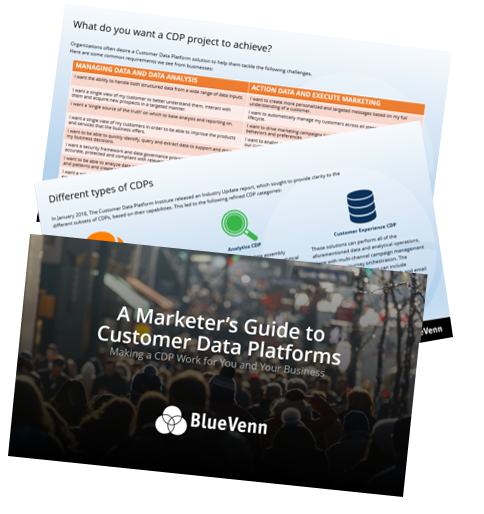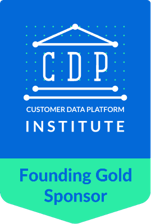Customer Data Platform Series: 2 of 5
Over the next 5 weeks, read a new blog each week from our CDP Series as our CMO helps you to understand the CDP landscape, capabilities and functionality.
A question that we often get asked is whether Data Management Platforms (DMP) and Customer Data Platforms (CDPs) are interchangeable?
More specifically, can a DMP be used to deliver the same results as a CDP, and if not, why not?
What is a Data Management Platform?
A DMP is a platform that ingests, collates and stores anonymous first-party (collected by a business about its own customers and visitors) and third-party (obtained from aggregation companies who are not the original compilers) customer data from online and offline sources.
It then segments all this information and makes it usable by other marketing platforms, especially those designed to place display ads and customized ad content.
What does a DMP do?
It allows users to create highly targeted advertisements for specific campaigns, which help to personalize the online experience of specific audiences, segmented according to their demographic, psychographic and behavioral data. Since the target customers aren't known, there are no privacy issues to worry about.
The Customer Data Platform definition
A CDP is intended to handle known customer data. Where it is not dealing with first party data, as it typically will be, it will aim to match anonymized customer data with other records, again from both on and offline sources, to reveal the person in question's identity and ultimately create a Single Customer View (SCV) of everything known about them.

This SCV becomes the 'golden record', to be retained indefinitely and used by marketers to segment and target that customer with appropriate messages and campaigns of all kinds, not just advertising. This can be done in real-time, and ongoing insights can be used to create a tailor-made customer experience, ensuring that existing customers will remain engaged and potential customers will be driven towards the end of the sales funnel as speedily as possible.
How is a DMP different to a CDP?
DMPs use aggregated data to target anonymous cookies for advertising and retargeting strategies. CDPs, however, aim to deliver personalized experiences across different marketing channels. While a DMP can ingest first-party data, it cannot make Personally Identifiable Information (PII) actionable in the same way a CDP can.
Instead, a DMP creates lookalike audiences using anonymous digital identifiers from across the web, gathering data about their interests based on their internet browsing behavior. As a CDP works with ‘known’ individuals, it can create one-to-one treatments for many different types of marketing, like personalized web pages, emails, offers and more.
Finally, DMP records tend to last only as long as cookies that build them, typically 90 days, after which they will disappear. This isn't as problematic as it sounds, since the data collected in a DMP is generally intended for one-off campaign use anyway. Since the intended targets are anonymous, they're likely not customers yet and retention isn't going to be a priority. Getting that first order is, and there's a ticking clock on engaging the customer. If they don't convert within the given time, chances are they never will.
Since one focuses on real, personally identifiable customers and the other on anonymous customers, CDPs and DMPs often work very well together and companies may consider using both.
This blog article is an extract from the A Marketer’s Guide to Customer Data Platforms eBook.
Remember, this is blog 2 of 5 in our Customer Data Platform series. For more from our CMO on the CDP landscape, capabilities and functionality, read blog 3 of 5 now or subscribe to the blog for alerts.
Want to know more? Download the ‘A Marketer’s Guide to Customer Data Platforms’ eBook

Download a copy of the ‘A Marketer’s Guide to Customer Data Platforms’ eBook to gain CDP advice, learn how a CDP differs from other data management technologies, or discover different types of CDPs and what to look out for when researching technology vendors.









